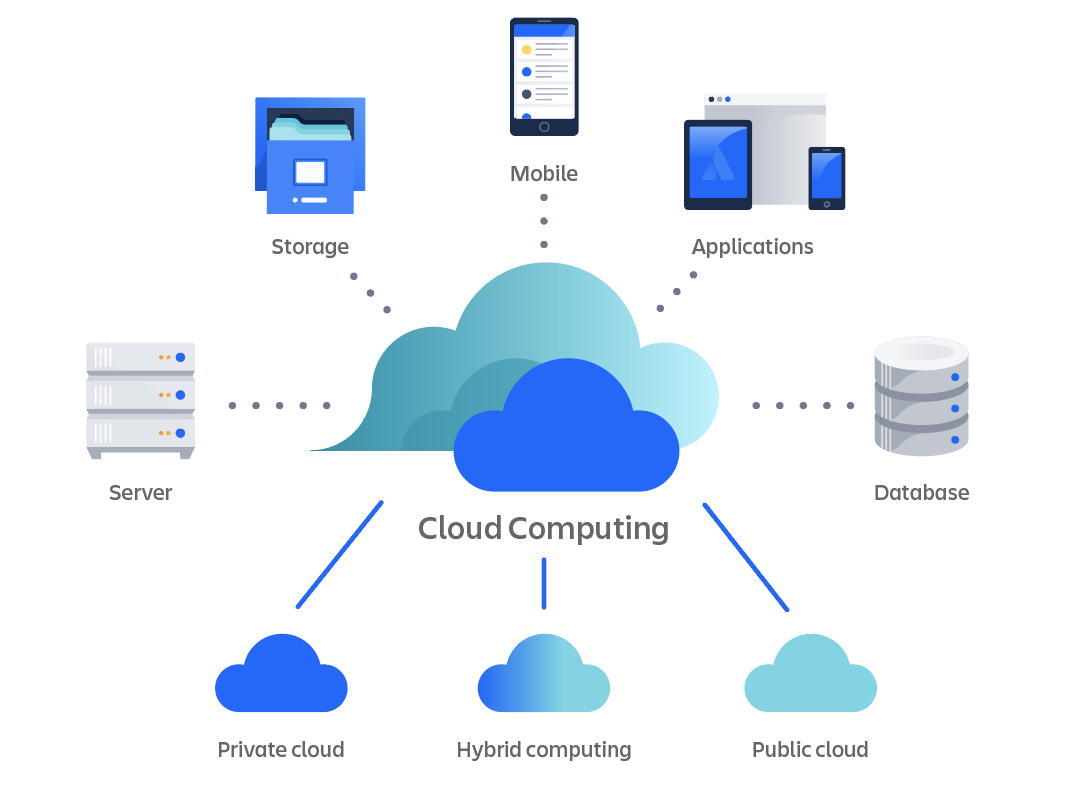Streamline IT Monitoring With Cloud Solutions
Cloud solutions have arised as a viable option for businesses looking to improve performance, lower prices, and boost general IT performance. How specifically do these cloud solutions revolutionize typical IT monitoring methods? Allow's discover the transformative influence of leveraging cloud solutions on IT operations and the crucial considerations for successful application.
Benefits of Cloud Solutions

Furthermore, cloud solutions allow organizations to improve their operational performance by simplifying processes and lowering the moment and sources needed for handling IT framework. With cloud services, services can automate routine jobs, such as software updates and information backups, maximizing IT teams to concentrate on even more calculated campaigns that drive business value.

Enhanced Scalability and Adaptability
Cloud services offer organizations with unequaled scalability and versatility in handling their IT sources effectively. Scalability is an essential attribute of cloud solutions that allows firms to quickly readjust their IT sources based on demand. With cloud services, organizations can rapidly scale up or down their computer resources, storage space ability, and network transmission capacity to satisfy transforming requirements without the need for substantial upfront financial investments in equipment. This flexibility allows companies to adjust to varying workloads, seasonal demands, or unanticipated development without experiencing downtime or performance concerns.
Furthermore, cloud solutions provide the adaptability to select from a variety of service models, such as Framework as a Solution (IaaS), System as a Service (PaaS), or Software Application as a Solution (SaaS), based on the certain demands of the service. The boosted scalability and flexibility used by cloud solutions encourage businesses to maximize their IT procedures and remain active in today's dynamic market atmosphere.

Cost-Effectiveness and Cost Savings
With the capacity to effectively assign resources based on need, services using cloud services can harness substantial cost-effectiveness and realize significant financial savings in their IT operations. Cloud services supply a pay-as-you-go model, permitting firms to only spend for the sources they use, removing the need for big upfront financial investments in software and hardware. This scalability ensures that organizations can conveniently adjust to fluctuating demands without overspending on unnecessary resources. In addition, cloud services decrease upkeep costs by shifting the duty of equipment maintenance and software program updates to the company. This reduces the requirement for committed IT staff to take care of infrastructure, more lowering functional costs. The cloud gives economic situations of range, with suppliers spreading out expenses throughout multiple customers, resulting in lower specific expenses for services visit this page like storage and computing power. Generally, the cost-effectiveness and cost savings achieved via cloud solutions enable services to reallocate sources towards innovation and development initiatives.
Improved Safety And Security and Compliance
Enhancing the general security stance and guaranteeing regulative compliance are extremely important considerations for organizations leveraging cloud services in their IT monitoring methods. Cloud provider offer sophisticated security procedures, such as data file encryption, multi-factor verification, and automated backups, which can boost a company's safety framework. These carriers likewise comply with rigid governing requirements, such as GDPR, HIPAA, and PCI DSS, helping companies fulfill compliance demands better.
Carrying out cloud services can improve security by supplying systematized control over access administration, monitoring, and data protection. This centralized approach streamlines security management and makes certain consistent application of safety policies across the company. In addition, cloud services often use real-time security updates and spots, decreasing the risk of susceptabilities and possible breaches.
Finest Practices for Cloud Execution
Applying cloud solutions effectively calls for a structured method that encompasses detailed planning and thorough execution. To make sure a smooth transition to the cloud, companies need to begin by conducting a thorough assessment of their present IT infrastructure and determining which workloads are ideal for migration. It is necessary to establish clear purposes and define key efficiency signs (KPIs) to measure the success of the cloud implementation.
One of the ideal methods for cloud application is to carefully select a cloud service copyright that straightens with the organization's needs in regards to safety, cost-effectiveness, conformity, and scalability. In addition, creating a comprehensive movement strategy that outlines the steps entailed, timelines, and obligations is important for an effective application.
Frequently maximizing and monitoring cloud resources to ensure effective performance and cost monitoring is one more important aspect of cloud application ideal techniques. Continuous examination of the cloud setting and remaining informed about updates and new functions supplied by the cloud company can better enhance the organization's cloud method. By adhering to these best techniques, companies can streamline their IT management and make the most of the benefits of cloud services.
Final Thought
In conclusion, leveraging cloud services for IT management provides many advantages, consisting of boosted scalability, cost-effectiveness, boosted security, and compliance. By following best practices for cloud implementation, organizations can have a peek here enhance their IT procedures, automate regular jobs, and optimize resource allocation. This structured approach allows IT teams to focus on critical efforts and innovation, eventually delivering value to the company. Overall, cloud services improve functional efficiency and agility in handling IT infrastructure.
Additionally, cloud services supply the adaptability to pick from a variety of service designs, such as Facilities as a Service (IaaS), Platform as a Service (PaaS), or Software as a Service (SaaS), based on the particular requirements of her latest blog the organization. Additionally, cloud services reduce maintenance costs by shifting the responsibility of equipment maintenance and software program updates to the solution copyright.Enhancing the total protection stance and making certain governing compliance are critical factors to consider for businesses leveraging cloud solutions in their IT administration techniques.Regularly enhancing and monitoring cloud sources to guarantee efficient efficiency and expense monitoring is one more critical element of cloud execution finest practices. Constant evaluation of the cloud atmosphere and remaining educated regarding updates and brand-new features used by the cloud service provider can additionally boost the organization's cloud method.